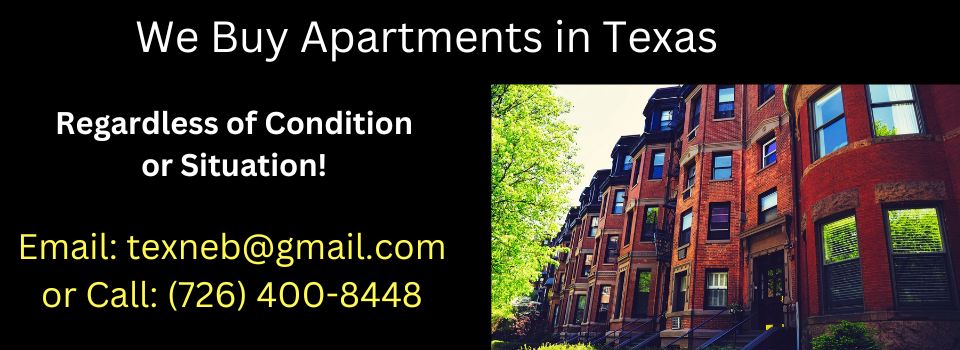One of the most important things that you can do when you purchase a property is to think about your exit strategy. You should have more than one exit strategy when you purchase an asset and you should think about the worst case scenario which will involve “how do I exit this under-performing investment?”.
Originally most people think that they will own the property forever and you may very well do that. However, I suggest that you review each of your properties on an annual basis to make sure that they are meeting your current investment and personal goals. Priorities in life will change over time and your investments should adjust with those priorities.
I believe that one of the best investment strategies that you can have is “buy low and sell high”. This would mean that when you are at the height of the market you would sell your property or properties, hold the cash in a low risk investment, keeping your money liquid and then get back in when the real estate market is down. You will probably be into your new properties for less than you were into your previous properties. Remember that you make your most money when you have bought the property at its lowest point.
Following are some exit strategies for you to think about when you purchase that special investment.
STANDARD SALE BY HIRING A REAL ESTATE PROFESSIONAL
The first exit strategy is the one that most people go through which is to hire a real estate broker and sell the property. You will want to calculate your breakeven point taking into consideration not only the amount of money you have invested in the property, but also the liens, commissions and closing costs. Plan and discuss the sales strategy thoroughly with your broker, and have him run the comparable sales in the market so that you can price your property accordingly.
Remember the 80/20 rule when it comes to brokers. The rule is that 20% of the brokers do 80% of the sales. Look for that broker in the 20% arena.
To help your broker get the most offers and to maximize the sales price, it‘s a good idea to spruce up the property and/or stage it. Aim to look better than your competition.
FSBO – FOR SALE BY OWNER – SELL IT YOURSELF
Your next exit strategy might be to sell the property yourself. You can save some commission money; however, in commercial real estate I always suggest that you add the commission money into the sales price and let a broker handle things. Doing it yourself will take some time and work from you as you will need to come up with a marketing strategy. If you do belong to an investment club or are well connected in the commercial real estate community, then you may do well to put a marketing strategy together and do it yourself.
The marketing strategy should include these four essential components: defining the investor or buyer, understanding your competition, clearly presenting the benefits that you are offering and structuring your pricing and terms.
PROVIDING SELLER FINANCING
The third exit strategy that you might want to consider is Seller Financing. The benefits of seller financing include:
- receiving monthly payments without having to worry about all of the ownership issues such as procuring tenants, maintenance issues, etc.
- deferring taxes as you will only have to pay taxes on your yearly gain (check the current tax laws with your accountant on this)
- makes the property easier to sell as the new buyer won’t have to go out and get a new loan
- draws more potential buyers as some buyers won’t qualify for a traditional loan due to income documentation, self-employment or minor credit blemishes
- provides a greater likelihood of getting full market value for your property
- gives you a liquid asset as you can sell the note at a later date also giving you an opportunity to strategize or plan for the gain
- allows you to receive a higher interest rate on your money than if you put it into other things such as bonds, savings accounts, etc
- provides the peace of mind that your security is the real estate that you have owned and thus know quite a bit about
- saves you money on the closing costs
The major negative of seller financing is that you may have to go through the foreclosure process if the buyer defaults, and the house may need repairs once you have foreclosed. If you are going to do seller financing I suggest that you get at least 10% down, run a credit check on the buyer so that you understand your risks and have the loan secured by the property.
UTILIZING A LEASE OPTION
Another exit strategy is to utilize a Lease Option. In this scenario, you put the tenant in a lease with the option to purchase the property at a set price at a future date. At a minimum, the monthly rent should cover your monthly costs and you should require a non-refundable deposit that is applicable to the purchase price for the option right. The pluses to this strategy are:
- it’s a great strategy in a slow market where you would have to take a loss if you sold the property today
- this type of tenant will typically take better care of the property
- you may not have to pay a real estate commission if the tenant buys the building
The negatives are (1) if the market goes up and you have to sell it at less than market as you cannot sell it to anyone else during the option period; (2) your current mortgage may have a “due on sale clause” and this event may trigger that clause.
DO A 1031 EXCHANGE
If you have done a great job with your investment and you are looking at substantial capital gains if you sell the asset, you might want to consider a 1031 exchange. This is the Unites States government’s way of allowing you to exchange all or a portion of your capital gains through the purchase/exchange into another property. There are many guidelines and rules to follow in this process, but they can be well worth looking into as you can “move up” in your investments through time without paying taxes until you fully divest yourself of the investments. You may also be able to pass them along to your heirs “tax free”.
DECLINING GROWTH
If your strategy is to get into properties, fix them up or re-tenant them and resell it, your financial model will tell you when to sell. A property’s internal rate of return is a metric that tracks the total return of the investment over its holding period. As you stabilize the property, its income goes up and the rate of return goes up with it. Once you’ve gotten the property optimized, it earns a good return, but the rate stops going up. At that point, you’re no longer creating value, and it’s probably time to sell.
BALLOON PAYMENTS
Most owners hope to pay down their loan every year while growing their income and the property’s value. The longer you own it, though, the less of an effect these changes have on your overall position. For example, if you have a 20 percent equity position and it goes to 22 percent, it’s a 10 percent increase while going from 50 to 52 percent is a 4 percent increase. Many commercial real estate mortgages call for balloon payments between seven and 10 years into the loan. Given that the loans are inconvenient and expensive to refinance, the balloon payment due date is an excellent time to take your money out, reinvest it by trading up into another property and start again.
CONCLUSION
As you can see, there are many exit strategies. The key is to have a few in mind when you purchase the property and to review your goals each year to make sure that your portfolio is performing as your current goals require. I’ll leave you with the thought “Always buy with the end in mind” and you will always sell with a clear profit.
As I say throughout my blogs… if I may be of assistance with your real estate questions, please contact me. I truly want to help. My way of giving back is to give away my knowledge. Thank you for reviewing this blog.


